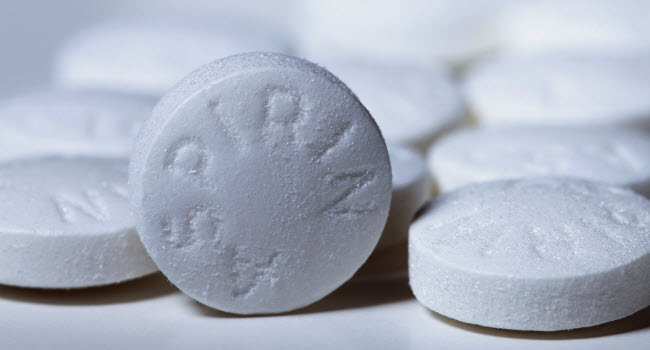“The present study sought to better understand the potential favorable effects of aspirin in aiding the human immune system battle COVID-19,” said study principal investigator Eugene Merzon, of Leumit Health Services at Bar-Ilan University. “We intend to investigate a larger cohort of patients and in randomized clinical trials.”
Two experts in the United States agreed that the findings are interesting, but more study is needed.
“This certainly raises some intriguing questions,” said Dr. Michael Goyfman, who directs clinical cardiology at Long Island Jewish Forest Hills in New York City. But for now, he said, the data is too early to be more than “hypothesis-generating.”
He pointed out that “confounding” factors could be at play. “For example, did less people get COVID-19 because of their use of aspirin? Or perhaps those people who take aspirin also take other medications as well, are better adherents to physician recommendations, and perhaps are more likely to practice social distancing?,” Goyfman said.
And far from low-dose aspirin being a harmless drug, Goyfman stressed that it does come with risks — so folks worried about coronavirus may want to think twice before starting daily aspirin.
“Its various risks include peptic ulcer disease, gastrointestinal, intracranial, and other bleeding,” he said.
Dr. Len Horovitz is a pulmonologist at Lenox Hill Hospital, also in New York City. He said that “aspirin certainly has anti-inflammatory benefits, and if studies in larger groups are conducted, it is conceivable that aspirin may have a role in COVID prevention and treatment in certain patients.”
But Horovitz said new data in recent years has taken a bit of the shine off aspirin’s heart-healthy halo.
“While aspirin therapy was in wide use in years past, the addition of aspirin to statin therapy did not significantly reduce the incident of first heart attack — and also resulted in significant mortality from bruising and bleeding,” he noted.
The study was published recently in The FEBS Journal.
More information
The U.S. Centers for Disease Control and Prevention explains how to protect yourself and others from COVID-19.
SOURCES: Michael Goyfman MD, director, clinical cardiology, Long Island Jewish Forest Hills, New York City; Len Horovitz, pulmonary specialist, Lenox Hill Hospital, New York City; Bar-Ilan University, news release, March 10, 2021






